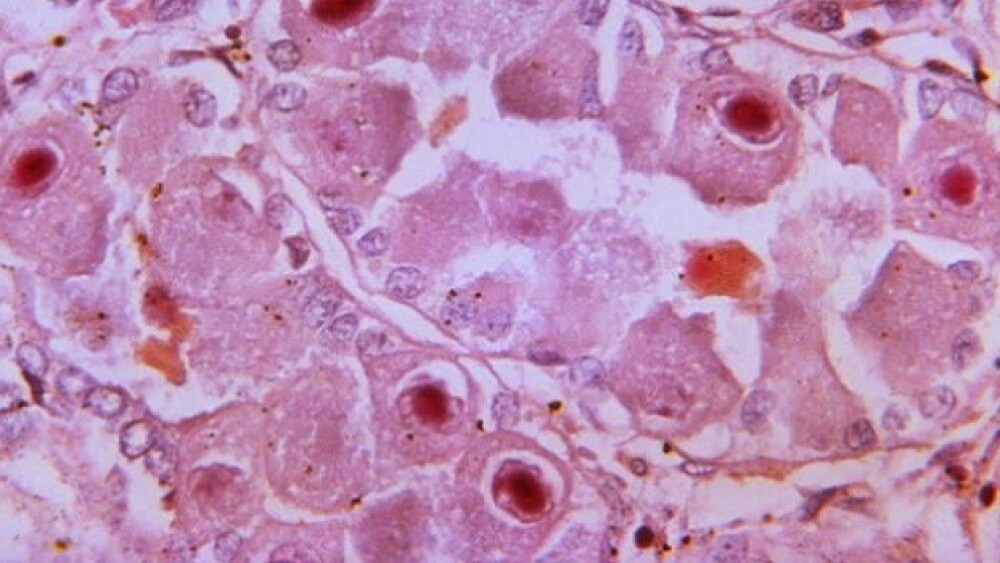The biopharma discontinued its late-stage study after an interim review found that its investigational treatment for immunoglobin A nephropathy did not achieve statistically significant improvement over placebo.
Pictured: Photomicrograph of a Lendrum-stained kidney tissue specimen/CDC/Rosalie B. Haraszti, M.D.
Seattle-based biopharma Omeros is calling it quits on efforts to secure FDA approval for narsoplimab, an investigational kidney disease treatment, after an interim analysis found it performed no better than placebo.
The company announced Monday it would be discontinuing its Phase III Artemis-Igan trial of narsoplimab, which was being tested as a potential treatment for immunoglobin A nephropathy (IgAN), a condition in which the immune system antibody IgA builds up in the kidneys causing inflammation and damage.
Omeros’ stock price fell on the news, dropping by 47% to $1.20 a share in premarket trading on Monday.
The study’s primary endpoint was proteinuria, or how much of the protein is present in the urine, assessed by 24-hour urine protein excretion after taking the drug for 36 weeks. Proteinuria reduction in the placebo group was substantially greater than reported in other IgAN clinical trials, according to Omeros.
While the drug was “generally well tolerated without any safety signal of concern,” the company said in Monday’s press release that it will not submit an application for regulatory approval of narsoplimab “based on the absence of statistical significance and as previously agreed with [the] FDA.”
It marks the end of a years-long push by Omeros for narsoplimab’s approval. Its initial application to the FDA was in 2020 for treatment of complications resulting from hematopoietic stem cell transplants. That application was rejected in 2021, prompting a formal challenge from Omeros with the regulator providing a potential path forward and Omeris indicating in late 2022 that it would continue to pursue regulatory approval.
Meanwhile, Omeros was also gathering evidence for an alternative route for narsoplimab as a treatment for IgAN, and initial results were promising. A Phase II clinical trial found a 64% reduction in proteinuria, suggesting narsoplimab could enable Omeros to potentially challenge market incumbents Calliditas and Travere Therapeutics. However, the study lacked a control group and when a control group was added in the Phase III trial, the effect disappeared.
CEO Gregory Demopulos said in a statement that Omeros “will conduct more detailed analyses of the data to understand better the outsized placebo effect and the overall trial results and to try to identify useful biomarkers.”
Demopulos added that the money “earmarked for commercialization in IgAN and continuation of the ARTEMIS-IGAN trial will be redirected to our other later-stage programs,” including an ongoing Phase II and upcoming Phase III programs for the company’s alternative pathway inhibitor OMS906, a humanized monoclonal antibody targeting mannan-binding lectin-associated serine protease-3.
Connor Lynch is a freelance writer based in Ottawa, Canada. Reach him at lynchjourno@gmail.com.





